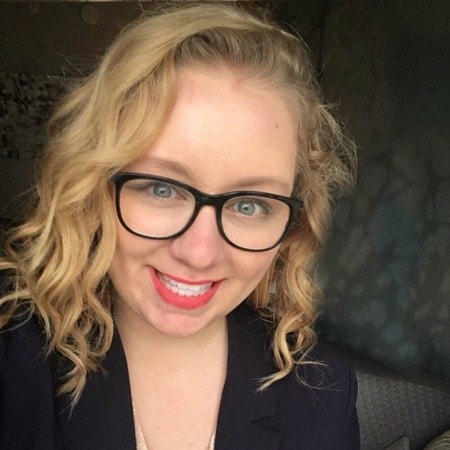|
By Stacey Lefever
I grew up in a town with few Jewish families and so being Jewish made me feel alienated, like an outsider. While my friends celebrated Christmas, I received socks and gelt from my parents, because, as my mother pointed out, Hanukkah was not an important Jewish holiday. While my friends sat down for meals of ham and mashed potatoes at Easter, my family and I ate stale cracker matzoh and horseradish for Passover. I did my best to hide my Jewish identity, often pretending to be Christian like everybody else. When I was out of school for the High Holy Days, I would tell my classmates I had been ill. I attended Hebrew School twice a week, kicking and screaming all the way, and eventually was Bat Mitzvahed, but after the pomp and circumstance, I disappeared from synagogue. After college, I moved to New York City, and there I met a young woman who had grown up in a largely Jewish town in New Jersey. Her take on being Jewish was radically different than my own. For her, Judaism was not simply a religion, but a culture. She began taking me to friends’ houses for Shabbat dinners and we explored the eclectic variety of synagogues in the city; Reform, Reconstructionist, Modern Orthodox, and Conservative. The choices seemed endless. I began to see what she saw in her Jewish faith, a vibrant living legacy that was part of her greater identity. I began to get a sense of the Jewish community, which was far greater and more diverse than either of us. As I grew older and moved from New York to Pittsburgh, I began to seek out the larger meaning of being Jewish for myself. I began holding a giant Hanukkah celebration at my house for all of my friends, Jewish and gentile. I spent three days in the kitchen making a huge Passover dinner and invited my whole family. I began to see that, whether we were Ashkenazi or Sephardic, Israeli or Diaspora, Ethiopian or Russian, all of the Jewish people spoke the same language, not Hebrew; but a language of being different, unique, persecuted, stubborn and steadfast. A language filled with both celebration and suffering. A language of our own. I see Judaism as a giant, ancient tree; with many branches, going in many different directions. Temple Sinai is one of those branches. When I began working at Sinai in March, I felt both a strong connection to the Temple community and a sense of purpose in my profession as a social worker. Whether it was discussing psychology with Rabbi Goldwasser, kibitzing with Dottie at the front desk between therapy sessions, joking around with Rabbi Sol during Hebrew School, shoveling in bagels at Shabbat breakfast, or sharing dessert with the folks in the Kosher Café; I continually felt supported in my mission to help others. I heard that wonderful passionate language of the Jewish faith spoken here. Instead of feeling alienated, I began to see that being different actually made me fit in. Sinai embraced me, and I embraced it. I began to feel myself growing into a small leaf on the strong branch of the Sinai community. And so, it is with great sadness that I must tell you that I am leaving Temple Sinai and my work as a Kesher Social Worker. I am moving on to a full-time position at another agency in Connecticut, a decision which was incredibly difficult to make. Not every day was easy in my work at Sinai, some days were extremely challenging, but I always felt a sense of purpose and dedication in both my professional and spiritual life. I have felt the love you have for one another, and the strong sense of faith, social justice, and passion for mitzvot that Sinai members share. Rhode Island is a small state, and the Jewish community is even smaller, so I believe I will see many of you as time goes on, crossing paths on our respective journeys. I hope that in, however a limited way, whether directly or indirectly, I have made a difference in the Temple Sinai community. I can sincerely say that all of you have made a difference in mine. Thank you for allowing me to be only a small leaf on this beautiful big tree. Stacey Lefever, LCSW, is the Kesher social worker at Temple Sinai. Kesher is the congregational outreach program of Jewish Collective Services of Rhode Island, funded by the Jewish Alliance of Greater Rhode Island, and currently active at Congregation Agudas Achim, Temple Torat Yisrael, Temple Sinai, Temple Emanu-El and Congregation Beth Sholom. She can be reached at [email protected] or 401-428-4084. If would like to contact Stacey, her last day will be Tuesday, September 18th at the Kol Nidre service. She will be available at both her email [email protected] or by phone at (401) 428-4084 until then. Please contact her supervisor, Rose Murrin, at Jewish Collective Services, (401) 331-1244 or [email protected] with any questions or concerns after that date. |
Samantha ClarkSamantha Clark is part of the Kesher Worker team at Temple Sinai. Kesher is the congregational outreach program of Jewish Collaborative Services of Rhode Island, funded by the Jewish Alliance of Greater Rhode Island and private donors. Katie can be reached at 401.415.8213 or by emailing Archives
April 2021
Categories |

Affiliated with the Union for Reform Judaism
30 Hagen Avenue • Cranston, RI 02920 • 401-942-8350 Office: dottie@templesinairi.org Rabbi Jeffrey Goldwasser: [email protected] |
Want to sign up for the weekly Sinai Scroll email?
Click here to receive weekly updates on Temple services, events and a message from the Rabbi. |


 RSS Feed
RSS Feed

